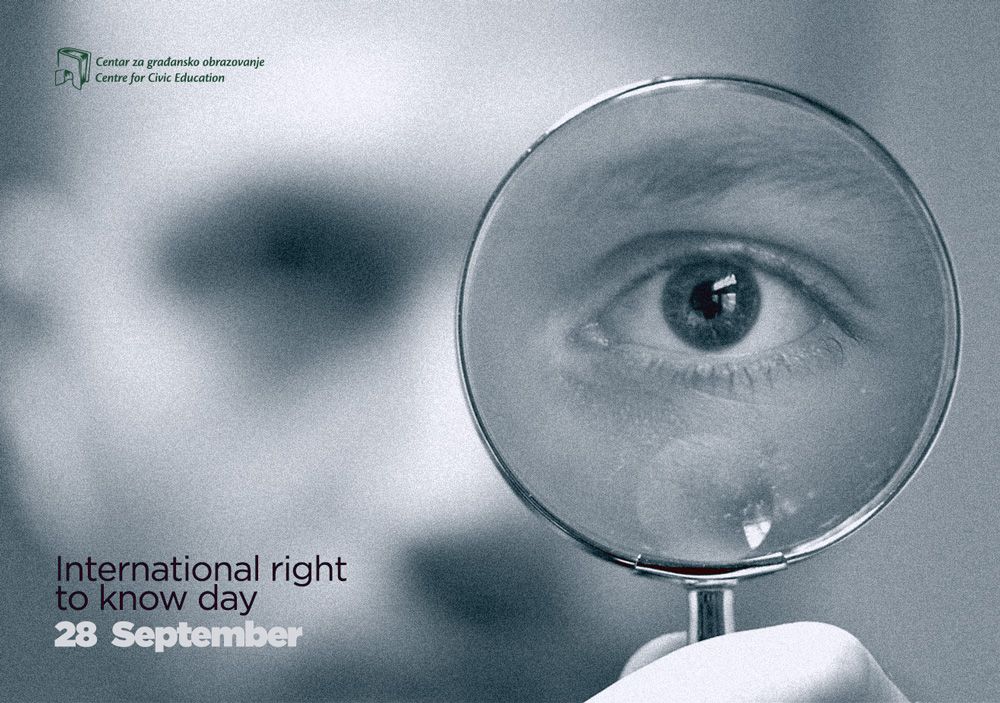Centre for Civic Education (CCE) reminds that Montenegro is marking another International Right to Know Day with limited track record in the field of data access and worse legislative framework compared to one that was the starting point.
The process of democratization of society requires openness of institutions towards the public in order to further influence strengthening of their accountability. However, openness of institutions towards the public in Montenegro is at the pace “one step forward, three steps back,” with negative trends in the last year and half. This was supported by the amendments to the Free Access to Information Law, which significantly reduced the otherwise modest progress in this area. Namely, these amendments to the Law provide for the freedom of discretionary decision-making by the authorities in the identification of documents with business or tax secrets, without deadline indicating the reasons for limiting access to information. Still, silence of authorities, slow proceessing of the Agency for protection of personal data and free access to information, etc., remain as important problems. All this directly affects the quality of the information that the applicants receive or do not receive in a timely manner. Such solutions have negative impact on the overall system, which is, today, much more closed than a few years ago, instead of reverse.
Equally important, it is particularly complex situation for those citizens who are representatives of minorities and persons with disabilities. Montenegrin public administration system must be accessible to all citizens, so that they feel as an active part of the society, who can easily and effectively enjoy their rights and fulfill the imposed obligations.
Also, public administration bodies should be far more proactive in publishing data of public importance, to which they are bound by Article 12 of the Law. This would reduce the number of requests for free access to information and the chained “congestion” of the system when deciding on them.
Therefore, further efforts are needed in professionalizing and depoliticising public administration and up-to-date resolution of requests. This indicates the need for new amendments to the Law on Free Access to Information, but also the political decision of the Government to open to citizens, as well as interested parties, indiscriminately.
International Right to Know Day was established in 2002 at the joint meeting of representatives of mainly non-governmental organizations in Sofia, Bulgaria. Nowadays, this day is marked around the world in order to promote the right to free access to information, as one of the basic human rights, but also to encourage citizens to use their right, and the authorities to be more transparent in their work.
Mira Popović, Programme associate

